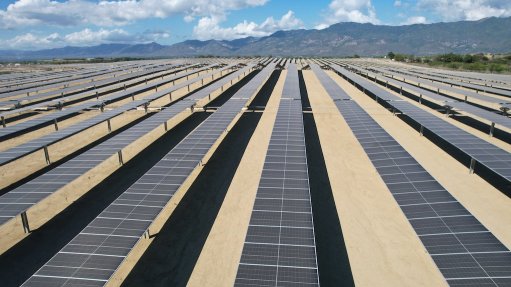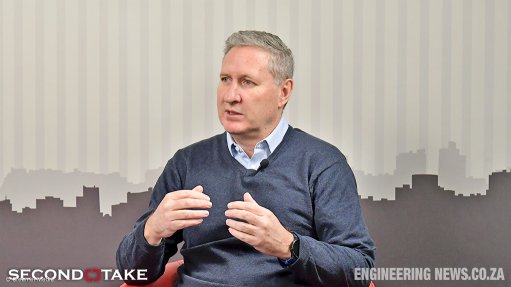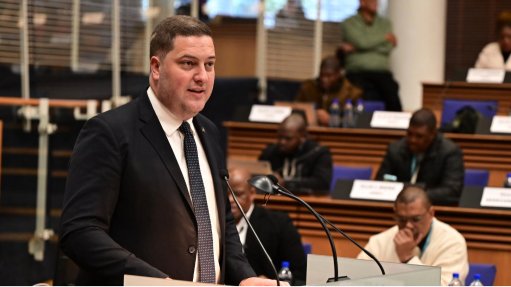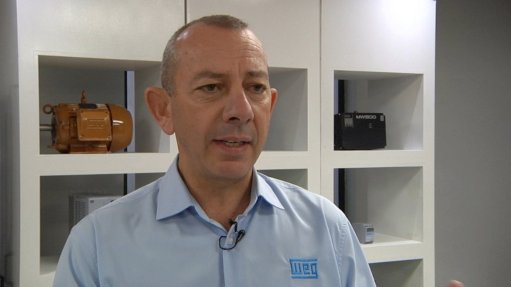ESG through an African lens: a unique reality requiring a systemic approach and an African voice
This article has been supplied.
When talking about ESG in Africa, it should be anchored in the realities of the continent. Many of the African CEOs or African directors of multinational companies have mentioned that, in terms of ESG, they spend much of their time explaining the importance, complexity and uniqueness of the social dimension and challenge of ESG in Africa to their counterparts in other territories. They explain that "it is different here", that the social dimension of ESG is material to the sustainability of the business and that it is uniquely interlinked to the environmental and governance elements. This quite often goes unheard and/or fails to shift their mindset. This drastic clash of realities between a corporate ESG manager or board member in London and a CEO or ESG manager in Mali must be understood, accepted, and integrated into our approach to ESG and ambition for ESG to support transformative impact for the continent and its people.
Let's spend some time understanding the continental context in which ESG must deliver value. Progress has been made towards the achievement of the Sustainable Development Goals in Africa and the Africa Union Agenda 2063. The agenda sets a strong vision and direction for "the Africa we want" which supports inclusive and sustainable development, the pan-African drive for unity, self-determination, freedom, progress and collective prosperity pursued under Pan-Africanism and African Renaissance. However, the continent still faces major systemic challenges.
From a social perspective, access to land, security, migration, lack of access to basic services, poverty, inequality, health, inclusivity, education, sustainable livelihoods, food security, lack of social cohesion, lack of individual agency, youth employment and digital inequalities are some of the key challenges framing the daily life of most people living in Africa. By 2030, an estimated 479 million Africans (28.1% of the population) will be living in extreme poverty. According to the Institute for Security Studies (ISS), Africa has the largest share of extreme poverty rates globally, with 23 of the world's poorest 28 countries, with extreme poverty rates above 30%. The ISS also indicates that the higher initial poverty levels coupled with low asset ownership and restricted access to public services also make it difficult for households to take advantage of growth. Africa will account for more than half (54%) of the 2.4 billion global population growth in the coming decades. The United Nations predicts that between 2015 and 2050, Africa will add 1.3 billion people, more than doubling its current population of 1.2 billion. This translates into smaller per capita income increases.
The overwhelming majority of Africans today have access to mobile phone services, but less than two-thirds have access to piped water. Access to basic services remains a major challenge for people living in Africa. The climate and biodiversity crisis, land and soil degradation, unstable natural resources use, waste, pollution, and stress on water resources are all affecting people, their health, security, livelihoods, well-being and ultimately their ability to develop. 85% of people's livelihoods are reliant on natural resources. Africa is the region the most affected by climate shocks. According to the State of Climate in 2021, in just 2020 and 2021, 131 extreme-weather, climate change-related disasters were recorded on the continent. Climate change, therefore, poses substantial risks to African economies and threatens the lives and livelihoods of millions of people. It is not only the physical impacts of climate change but also the economic consequences of changes in required resources and global value chains because of decarbonisation that will further impact African economies and cause higher levels of poverty.
Inflation, rising costs of living, lack of electrification, and access to finance and technology are key economic systemic factors impacting the ability of most people in Africa to develop and grow. Corruption, lack of ethical leadership, lack of inclusive development, environmental justice, loss of agency, trust deficit, and lack of good governance, are also contributing to the inability of most people to take part inclusively and productively in the economy. Bad governance, corruption, and high-income inequality also lead to increased levels of poverty.
Anyone who has worked in Africa knows that unfortunately there is no silver bullet to address the current situation. "Africa's sustainability challenges must be viewed and addressed in an integrated and systemic way" argues Wendy Poulton, Director at Strategic Mindsets. The long-term challenges Africa faces are inter-linked and mutually reinforcing. Stakeholders tend to work on one aspect, and not face the complexity of working on multiple fronts simultaneously. To achieve real change, it is essential to take a system thinking and long-term impact approach to understand and act on the deep-rooted systemic causes of the current situation. An integrated and transformative approach is needed to tackle poverty, the demographic transition, climate change, corruption, bad governance, infrastructure shortage, lack of regional trade integration and poor quality of education. Sustainability is at the core of the inclusive, resilient, sustainable, regenerative development of the continent.
"Africa's potential as a growth market means that business can and should play a transformative role in solving the continent's biggest challenges" emphasises Joshua Low, Co-Founder of the ESG Africa Conference and Business Consultant. Africa's high levels of poverty and its gaps in infrastructure, education, and healthcare have driven entrepreneurs to have a deep sense of purpose and social impact. For ESG to be meaningful and create real value for people in Africa, it should become a catalyst for business engagement in delivering transformative impacts in Africa. "ESG should stimulate businesses in addressing the African systemic challenges and add value to the continent in an inclusive, equitable, sustainable and African way" states Justine Sweet, an African SHE legal expert.
It, therefore, seems essential that such a transformative approach to ESG be driven by Africans for Africans, underpinned by African values. The incredible diversity, cultural richness and collective value systems are major assets for Africa to shape the ESG conversation, approach, and indicators necessary to deliver real value for Africa, building on African successes, experiences, and best practices. In this context, an African narrative and leadership is required to ensure that the continent has a strong voice in the ESG space at the global level.
Join us at the first ESG Africa conference, scheduled to take place at the Sandton Convention Centre, from the 25-26 October, as well as at our ESG masterclasses, so we can build this narrative and leadership voice together in an inclusive way, as well as develop our African ESG community of practice. This is our opportunity to ask ourselves the real questions, to challenge some of the assumptions and perspectives on ESG, to debate, to engage together so we can have a collective and common approach and shared narrative to ESG for the continent, to ensure that it delivers real value and transformative impacts. Join the Africa ESG conversation, join the Africa ESG community.
Written by Dr Marie Parramon Gurney, CEO of Skultcha, a purpose-driven company (shifting culture for a better world) based in Johannesburg, South Africa. Skultcha supports organisations (private, public and NGOs) in becoming more systemic and transformative in their sustainability, shared value and impact legacy journeys. Dr. Parramon Gurney has more than 20 years of experience in Africa in implementing inclusive, regenerative and equitable development, taking a system and transformative approach (from policy development, projects implementation on the ground, to working on culture and paradigms shift). Marie is also a co-founder of the Africa ESG Africa conference, supporting a purpose-driven, transformative and systemic approach to ESG in Africa.
For more information about the conference, you can visit the website at www.esgafricaconference.com , or contact the organisers at joshua@esgafricaconference.com
Comments
Press Office
Announcements
What's On
Subscribe to improve your user experience...
Option 1 (equivalent of R125 a month):
Receive a weekly copy of Creamer Media's Engineering News & Mining Weekly magazine
(print copy for those in South Africa and e-magazine for those outside of South Africa)
Receive daily email newsletters
Access to full search results
Access archive of magazine back copies
Access to Projects in Progress
Access to ONE Research Report of your choice in PDF format
Option 2 (equivalent of R375 a month):
All benefits from Option 1
PLUS
Access to Creamer Media's Research Channel Africa for ALL Research Reports, in PDF format, on various industrial and mining sectors
including Electricity; Water; Energy Transition; Hydrogen; Roads, Rail and Ports; Coal; Gold; Platinum; Battery Metals; etc.
Already a subscriber?
Forgotten your password?
Receive weekly copy of Creamer Media's Engineering News & Mining Weekly magazine (print copy for those in South Africa and e-magazine for those outside of South Africa)
➕
Recieve daily email newsletters
➕
Access to full search results
➕
Access archive of magazine back copies
➕
Access to Projects in Progress
➕
Access to ONE Research Report of your choice in PDF format
RESEARCH CHANNEL AFRICA
R4500 (equivalent of R375 a month)
SUBSCRIBEAll benefits from Option 1
➕
Access to Creamer Media's Research Channel Africa for ALL Research Reports on various industrial and mining sectors, in PDF format, including on:
Electricity
➕
Water
➕
Energy Transition
➕
Hydrogen
➕
Roads, Rail and Ports
➕
Coal
➕
Gold
➕
Platinum
➕
Battery Metals
➕
etc.
Receive all benefits from Option 1 or Option 2 delivered to numerous people at your company
➕
Multiple User names and Passwords for simultaneous log-ins
➕
Intranet integration access to all in your organisation

















